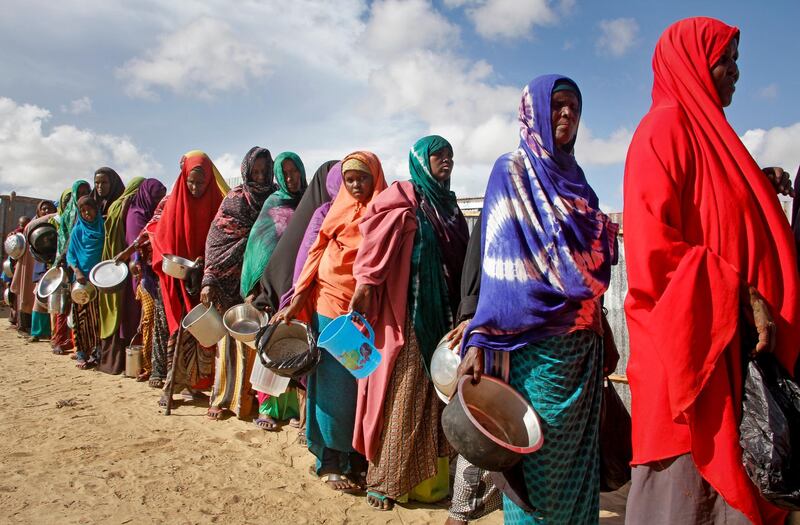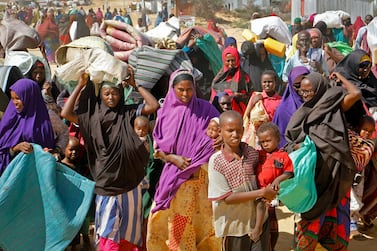More than two million people could die from starvation in Somalia by September if international assistance is not urgently provided in the war-scarred east African nation, the United Nations said this week.
Mark Lowcock, UN undersecretary general for humanitarian affairs, issued a call for about $700 million (Dh2.57 billion) to avert a humanitarian catastrophe after the driest rainy season in more than 35 years and Indian Ocean cyclones – chiefly Cyclone Idai in March – left millions on the brink of famine.
Alongside the 2.2m people facing severe hunger, a further 3.2m will reportedly struggle to meet basic food needs. Meanwhile, livestock and crops have perished, and the risk of deadly communicable diseases has grown. Since January, the number of Somalis facing starvation has ballooned by 40 per cent.
A large portion of those affected are already internally displaced – be it through conflict, insecurity or drought.
The UN’s central emergency response fund has already allocated $45m to address the most urgent shortages, but millions more are required.
"Widespread crop failure and a decline in livestock productivity are pushing communities in the worst-affected areas into acute food insecurity," Victor Moses, Somalia country director at the Norwegian Refugee Council, told The National last month. "Children are among the worst-affected and thousands are already suffering from malnutrition."
Vulnerable populations in parts of neighbouring Ethiopia and Kenya are also at risk, the UN said, although Somalis are most imperiled.
Despite the immense threat posed by climate change, the UN has struggled to muster the funding to help. Last week the organisation said its agencies had been forced to cut back in Somalia due to an acute lack of funding.
The country has a history of food insecurity, with two major famines in 1992 and 2011, both of which took a heavy toll. The latter reportedly killed 260,000 people.
“Communities that were already vulnerable due to past droughts are again facing severe hunger and water scarcity,” said Mr Lowcock. “Aid agencies in Somalia are also overstretched.”
It appears Somalia, which has been plagued by terrifying violence for decades, is also a key victim of climate change.
“There’s not really any question in my mind that these more frequent droughts are related to global warming and climate change,” said Mr Lowcock, pointing out that while famines once hit every half-dozen years, they now strike every couple of years in Somalia.
Fighting natural disasters and drought in the country is made all the harder by Somalia’s dire security situation. Insecurity has been rife since the fall of president Siad Barre in 1991 sparked a civil war, and despite the arrival of an internationally-recognised government in 2012.
Today, the central government has little power beyond the capital, Mogadishu, causing states such as autonomous Somaliland and semi-autonomous Puntland to look overseas for security and development. Both have close diplomatic and business ties with the UAE.
According to the Norwegian Refugee Council, Somaliland and Puntland are among the areas worst affected by this drought.






